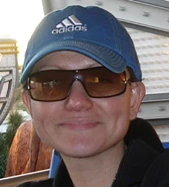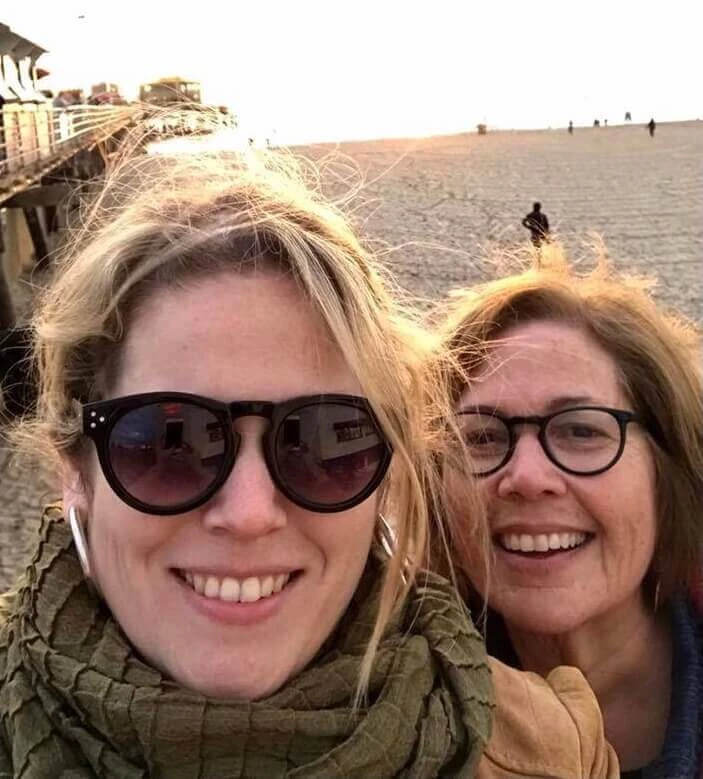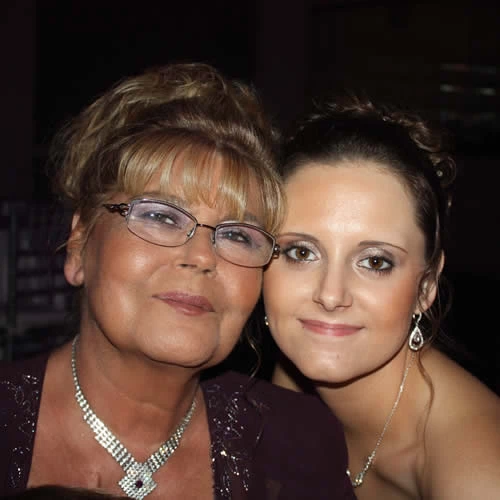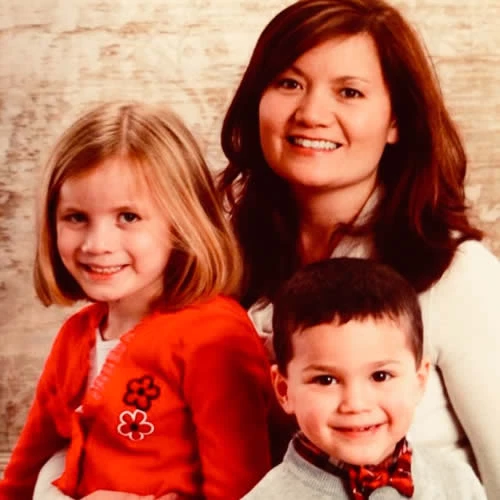Kathrynna Diagnosed at age 36
"I felt the lump on the first week of February 2007."
I felt the lump on the first week of February 2007. I was watching TV with my family when I accidentally touched my left breast and felt it, a lump the size of a small pebble. I had a hunch of what it could be but didn't think too much of it. I'm young, active and healthy at 36. Cancer was something that happened to other people, not me.
My doctor's appointment wasn't even for the lump. I had a lingering cough and fever and mentioned the lump almost at the end of the appointment. He made the usual recommendations: sonogram, mammogram, and maybe a biopsy later on.
A month later, March 12, I was back in the doctor's office. Even then, I didn't think too much of it. I had picked up my son from school before going there. Maybe I was in denial; I don't know. I just couldn't picture myself as a cancer patient. My doctor broke the news right away. He handed me the pathology report, and I couldn't read it, as I was shaking uncontrollably. All I could see were the words "high grade, aggressive and tumor." That's when I broke down. I had HER2, high grade 3, 1.9 cm infiltrating ductal carcinoma. Later on, I would learn that recurrence was higher for HER2 patients. At the time of my diagnosis, however, all I could think of was that I was going to die.
My world was turned upside down. I didn't know what to do; my sister-in-law, who's a nurse, took over. She did the research, made the appointments for the breast surgeon and accompanied me to my appointments. It was a blur, and I couldn't process everything that was being said around me. I felt overwhelmed and anxious all the time. I needed to speak to somebody who had gone through the experience before and explain to me what's going to happen and help me decide what I needed to do.
That's when I met my friend, a breast cancer survivor. Talking to her allowed me to see beyond the cancer. She'd been through a lot worse, and she looked fine. Most of all, she spoke confidently, and meeting her gave me an assurance that perhaps this would all turn out well. She was also pivotal in bringing me to Georgetown University Hospital's Betty Ourisman Breast Health Center.
It was after meeting my friend, speaking to my sister and doing my own research that I finally found the courage to decide on a double mastectomy. It was drastic yet, I felt, a more definitive solution.
I had surgery on April 30th. The doctors and my sister remarked that I was very calm, and my vitals were normal. I felt at peace with what I was about to do. That Sunday before the surgery, I asked God to give me the ability to accept whatever the outcome may be. It was then that I let go of my fear; as if it was a bag I could leave aside.
When I woke up after surgery, the first good news I received was that my lymph nodes were clear. I felt renewed. Because of this, my oncologist waived the radiation treatments. However, I still had to go through 4 cycles of chemotherapy, including one year of Herceptin infusions, broken down every three weeks. Herceptin was a relatively new drug at the time, specific for HER2. There were other drugs too, like Taxol. I could feel the effects of the drugs; it was as if my insides were at war. I felt nauseated and unable to eat. What would linger though, would be the fatigue and the numbness in my toes and fingers. To this day, I still feel its effects; I become easily exhausted and no longer have the energy that I once had.
But perhaps the worst effect for me of all these experiences was losing my hair. It was not physically painful. But I would catch glimpses on my eight-year-old son's face when my head was getting shaved or when I would be around the house and not wearing either a wig or my scarf. I didn't know what he thought. He never said anything. I often tried to draw him out so I could know what he felt.
This whole experience has been a terrible one. In the midst of it all, however, I now have a greater appreciation of life, even the most mundane things. I learned not to take things for granted. My priorities have also changed. What was valuable to me then has somehow diminished. I am thankful that despite the ravaging effects of cancer and its subsequent treatment on my body, I remain capable of doing so much still.
I have also felt an overwhelming need to reach out. When friends call and ask me to speak to somebody they know who's just been diagnosed with cancer, I feel an urgent need to contact them. Just as I was once comforted and reassured by another who went through the same things I did, I feel the need to do the same for others.
Are you a survivor, spouse, friend, or caretaker with a story to tell? We'd love to hear from you.





